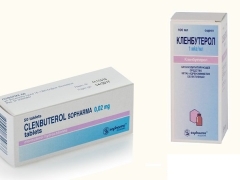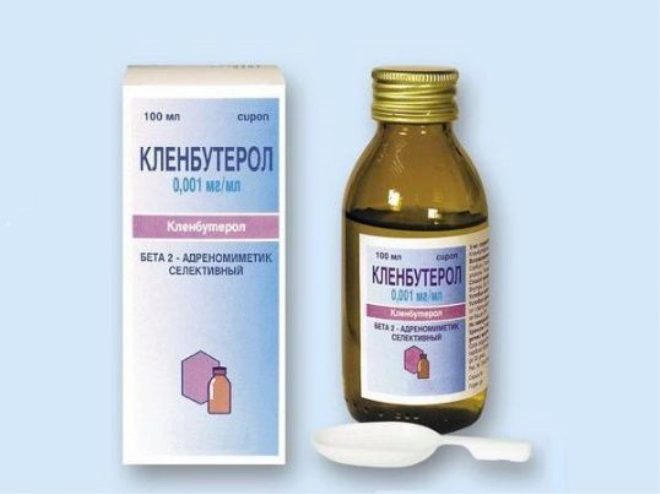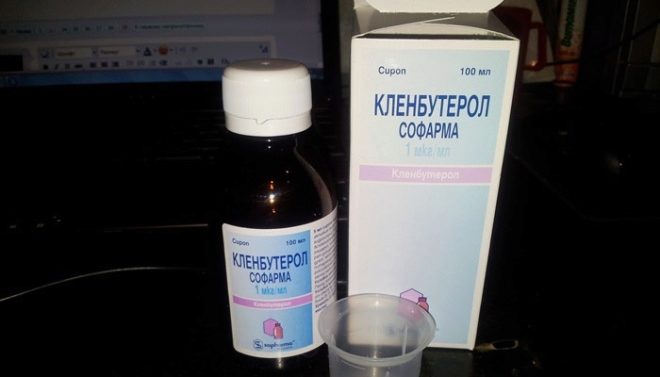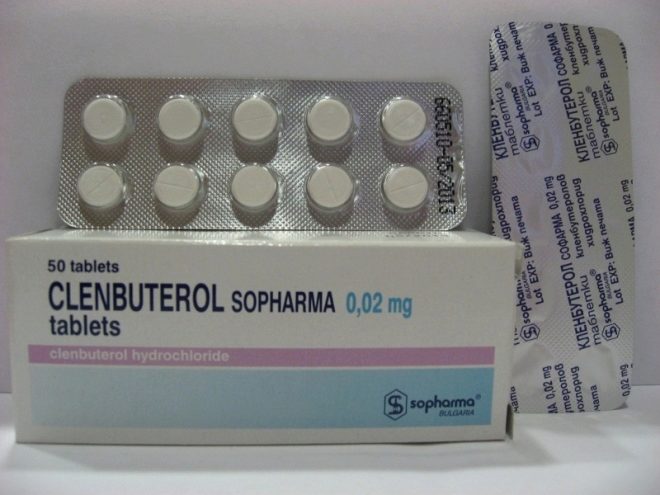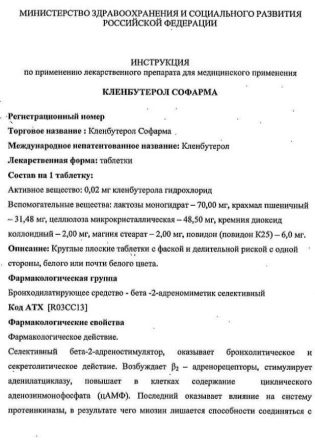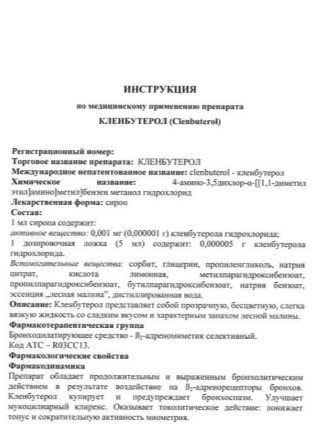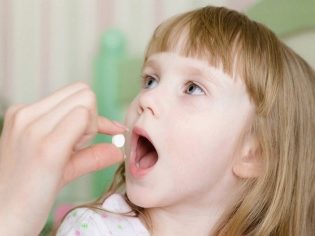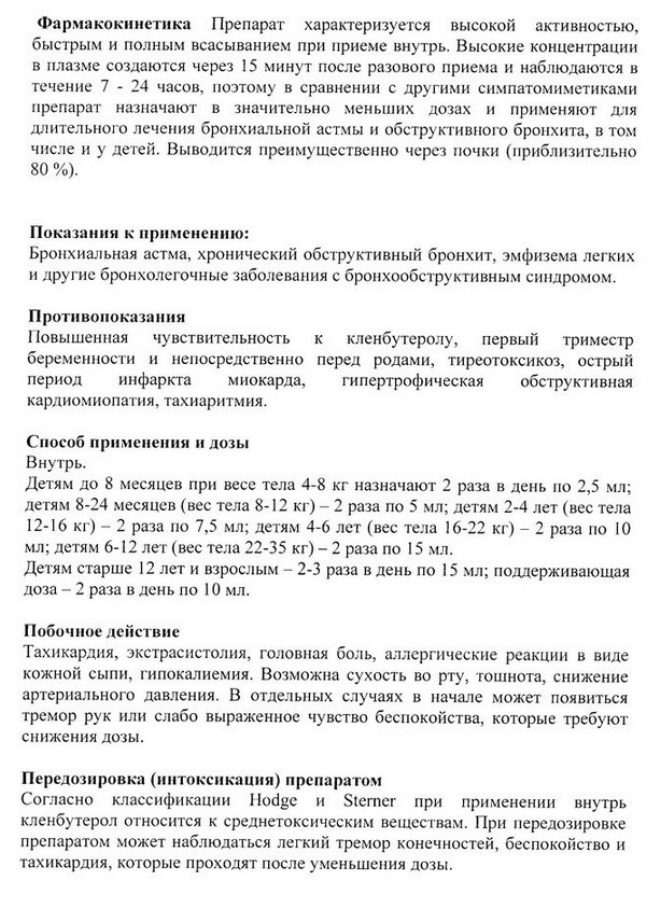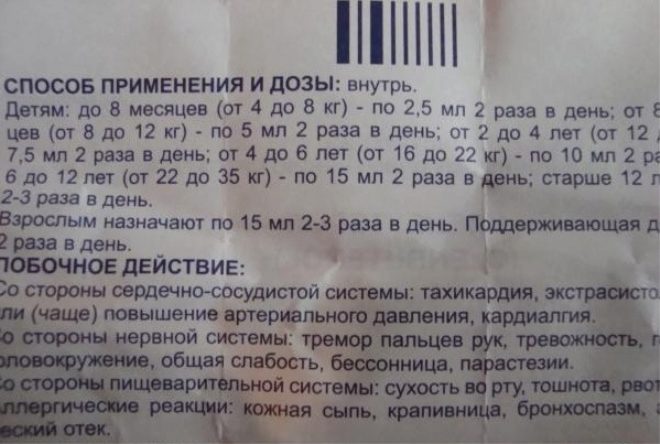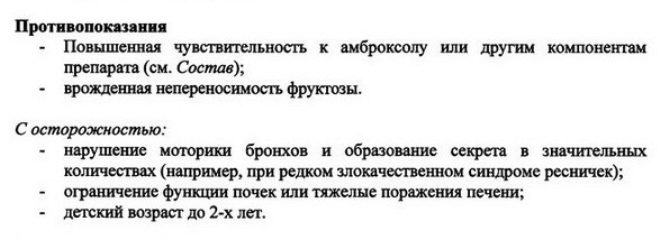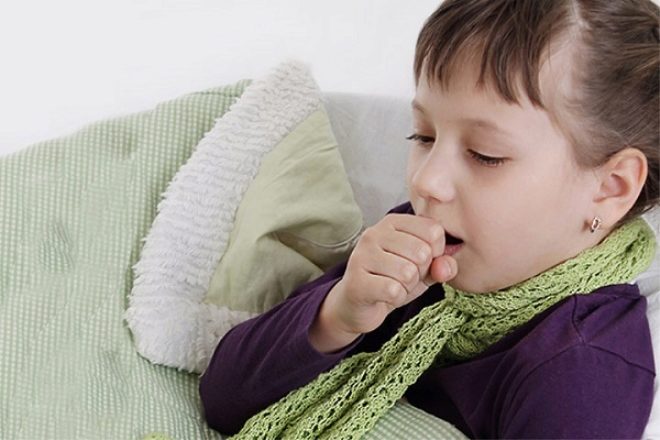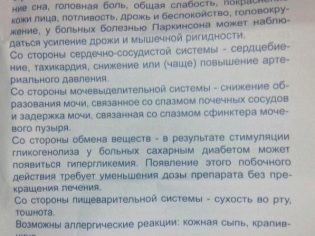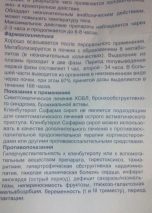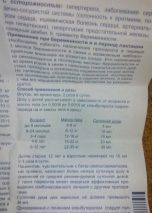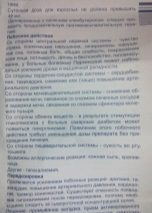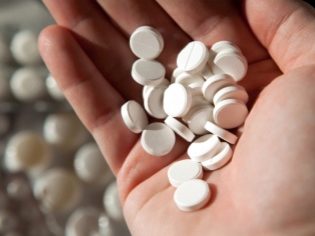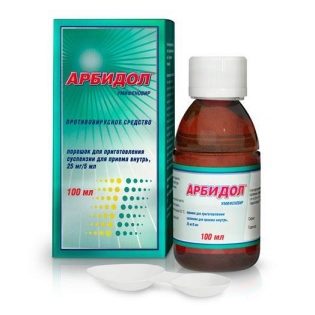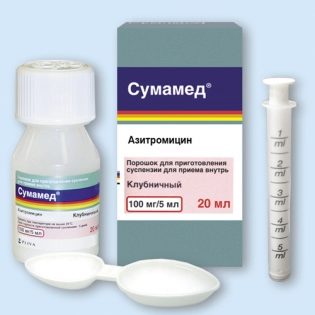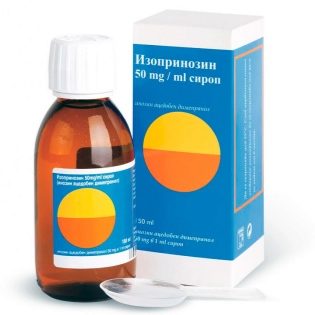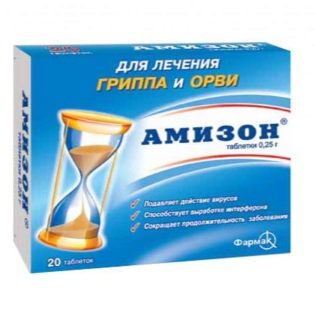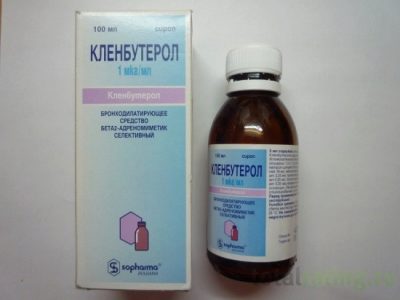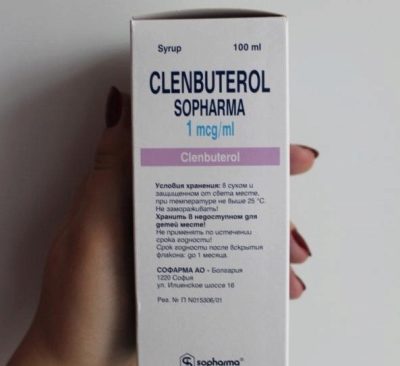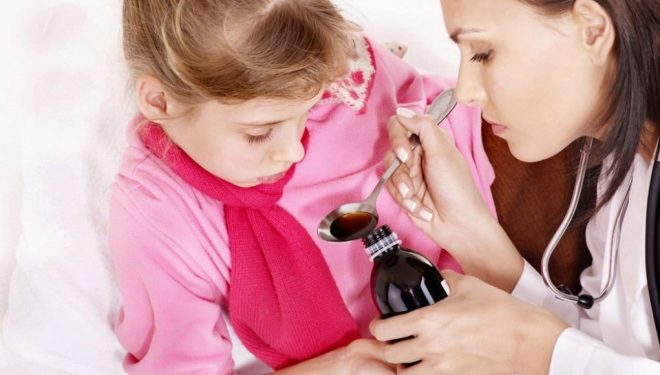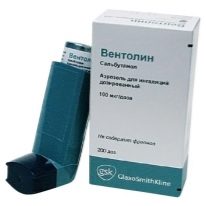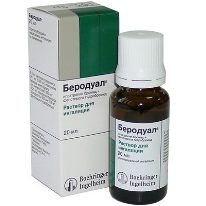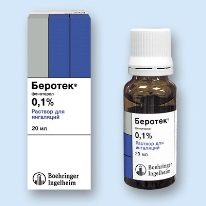Clenbuterol for children
Cough is a common symptom of illness in childhood. When he appears in children, parents seek to help their son or daughter as soon as possible and turn to a doctor. If the pediatrician, upon examination, diagnoses bronchospasm or a high risk of its occurrence, then the ill child is discharged from the group of bronchodilators. One of them is Clenbuterol. Is this remedy effective when coughing, when it is prescribed to children and in what dosage?
Release form
The drug is produced by Bulgarian companies Balkanpharma and Sopharma in two forms - syrup and tablets. Clenbuterol syrup is represented by a viscous clear liquid smelling of raspberries. It is sold in plastic or glass bottles, to which a measuring cup or measuring spoon is attached. One bottle contains 100 ml of syrup.
The solid form of Clenbuterol is a flat, white, round-shaped tablet, on which there is a dividing risk (according to it, the medicament is divided into halves if necessary). In one box is 50 tablets, packed in blisters of 10 pieces.
Composition
The active ingredient of the drug is clenbuterol in the form of hydrochloride. In 5 ml of syrup, this compound is represented by a dosage of 5 µg and supplemented with citric acid, sodium citrate, glycerol, raspberry flavor, propylene glycol, sorbitol, and other substances. One tablet contains 0.02 mg of active compound, as well as wheat starch, povidone, MCC, lactose monohydrate, magnesium stearate and silicon dioxide.
Operating principle
The drug belongs to the bronchodilator, because it can affect the beta-2 adrenergic receptors that are in the bronchi. The result of this effect is the relaxation of the smooth muscles of the bronchi. In addition, the drug has the ability to enhance the secretion of bronchial secretions, to expand the vessels of the muscles and brain.
On beta-1, adrenoreceptors clenbuterol acts very weakly (and therefore it is called a selective agent), only to a small extent enhancing the strength of heart contractions. It is also noted that such a drug has the property to slightly increase body temperature.
Clenbuterol is absorbed from both the liquid form and the tablets very well. After metabolic changes in the liver, most of the drug is excreted in the urine..
The effect of taking syrup or pills begins to appear 10-15 minutes after ingestion, and the maximum effect is observed 2-3 hours after the use of the medicine and lasts up to 6-8 hours.
Indications
The drug is used as a symptomatic remedy for bronchial obstruction. It is used:
- With bronchitis, pneumonia and other chronic pulmonary pathologies;
- In case of bronchial asthma (with the exception of an acute attack).
Sometimes the doctor prescribes syrup for tracheitis, whooping cough or laryngitis. It all depends on the course of the disease and the risk of complications in such pathologies.
At what age is it allowed to take?
Clenbuterol syrup is prescribed for children of any age. It is safe even for infants, if prescribed by a doctor in the correct dosage. The tablet form of the drug is not used in children under 6 years of age. This is connected with the ability of children to swallow tablets and with a higher concentration of the active ingredient.
Contraindications
To treat a child with Clenbuterol is prohibited:
- When hypersensitivity to such a drug (not only to the active compound, but also to any other of its components);
- With thyrotoxicosis;
- With cardiomyopathy;
- With tachyarrhythmias.
In addition, neither the syrup nor the tablets do not give when the carbohydrate metabolism is disturbed, for example, with malabsorption or isomaltase deficiency. Adults do not prescribe medication during breastfeeding, during myocardial infarction and during pregnancy (medication is allowed only in the second trimester). In diabetes Clenbuterol should be given carefully, because it stimulates glycogenolysis and can provoke hyperglycemia.
Side effects
- When treating Clenbuterol, such negative symptoms of the central nervous system as anxiety, headaches, sleep problems, fears, hand tremors, mental disorders, weakness and others can occur.
- The digestive system of the patient may respond to such a drug with nausea or dry mouth.
- The drug can affect the functioning of the heart, causing a rapid heartbeat. In addition, his technique can affect blood pressure - both to increase it (this effect is observed more often) and to lower it.
- Taking the medication may provoke an allergic reaction, for example, urticaria.
- Sometimes clenbuterol causes vasospasm of the kidneys and sphincter of the bladder, which causes the formation and excretion of urine to decrease.
Instructions for use and dosage
Syrup is given to the child twice a day with meals. The dosage is determined by the doctor individually, taking into account the body weight and the age of the small patient. Most often, the medicine is prescribed as follows:
- A baby under 8 months, weighing from 4 to 8 kg, is given 2.5 ml each.
- A child older than 8 months to 2 years old with a body weight of 8-12 kg is prescribed in a single dosage of 5 ml.
- A child from 2 to 4 years old, whose weight ranges from 12 to 16 kg, is given a syrup at a dose of 7.5 ml per dose.
- At the age of 4-6 years old and weighing from 16 to 22 kg a single dose of the drug is 10 ml.
- For children from 6 to 12 years old, who weigh from 22 to 35 kg, the medication is prescribed 15 ml per reception twice a day.
- At the age of 12 years old, a single dosage is also 15 ml, but the drug can be given two or three times a day.
Depending on the tolerability of clenbuterol, the dosage may be lower.
Tablets are also prescribed twice a day, and the doctor selects a single dose of this form of the drug individually, taking into account both the age of the child and the clinical situation.
The medication is given in the morning and at night.
The average dosage of this form of medicine for children 6–12 years old is half a tablet. A child over 12 years old is prescribed either 1/2 tablet twice or thrice a day, or a whole tablet 2 times a day.
Overdose
Too much of Clenbuterol will increase the side effects of this drug and cause tachycardia, trembling of the limbs, high blood pressure and other symptoms. For treatment of overdose, it is recommended to wash the stomach, give the child activated carbon, water-salt solutions and other necessary medications.
Interaction with other drugs
- Clenbuterol is often prescribed in combination with anti-inflammatory drugs, including glucocorticoid hormones.
- If a baby has a bacterial infection, this medication can be used together with antibiotics, for example, Clenbuterol and Sumamed.
- In viral infections, the drug can be administered together with antiviral agents (Arbidol, Isoprinosine, Amizon and others.)
- The simultaneous use of beta-blockers will reduce the effect of the drug or completely eliminate it.
- The therapeutic effect of hypoglycemic drugs under the action of Clenbuterol is reduced.
- If the drug is prescribed together with theophylline or cardiac glycosides, this increases the risk of arrhythmias.
- Simultaneous use with other adrenomimetics, anticholinergic drugs or tricyclic antidepressants will enhance the therapeutic effect of Clenbuterol.
- Appointment with sympathomimetics increases the risk of side effects.
Terms of sale
To purchase Clenbuterol at a pharmacy (any form of medicine), you must first visit a doctor and take a prescription from him. The average price of 100 ml of syrup is 60-90 rubles.
Storage conditions and shelf life
It is recommended to keep a bottle of syrup or packaging of tablets in a place hidden from small children and sunlight where the temperature will exceed +25 degrees Celsius. It is impossible to freeze the drug in liquid form. The shelf life of the tablet form and sealed bottle is 3 years, but after the first use the syrup can be stored for only one month.
Reviews
On the use of Clenbuterol in children found a lot of positive feedback. In them, parents note the high efficacy of the remedy for dry coughing. According to them, the child's condition improves after several uses, and the cough becomes more moist.
The drug in syrup is also praised for its convenient form, since the sweet taste allows giving such medicine to babies without any problems, and dispensing the product with a measuring cap is easy. In addition, the advantage of the drug is its affordable cost.
Disadvantages include possible side effects. Although, according to moms, they occur very rarely, but still occur in some young patients in the form of a rash on their cheeks, nausea, headaches and other symptoms. In addition, sometimes the child does not like the sweet taste of the syrup, and the shelf life of the product after opening is very small.
Analogs
Clenbuterol can be replaced with bronchospasm with other drugs from the same group of drugs.. The doctor may prescribe:
- Ventolin. Such an agent in the form of a metered aerosol contains salbutamol and is approved for use in children of any age. It can be replaced by drugs Astaline Salbutamol, Salbutamol-Teva, Salamol Eco or other aerosols with the same active ingredient.
- Berodual. The composition of this medicine includes ipratropium bromide and fenoterol. Both components relax the muscles of the bronchi. The tool is produced in the form of an aerosol and a solution for nebulizing inhalation. Children under six years of this medication is prescribed only under the supervision of a physician. An analogue of Berodual is Ipraterol-native solution.
- Berotek. The basis of this drug is fenoterol. The drug is produced in the form of a solution used for inhalation. Like Berodual, it can be prescribed to children under 6 years of age only under the supervision of a specialist.
For more on cough medicine, see a short video from Dr. Komarovsky.
